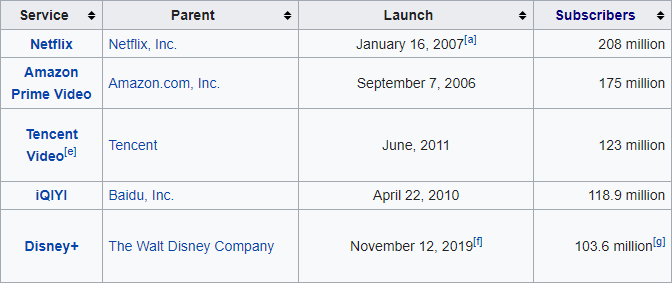#16 - Unbundling gone too far
Welcome! ☕ I write about the ideas, products, and tech advancing the creator economy. If this was forwarded to you, join below to get future editions in your inbox every week.
Short post this week with an example illustrating the concept from last week.
Streaming video: Unbundling gone too far
Over the past decade, consumers experienced drastic shifts in how they spend time consuming content. This has been due to a combination of
Explosive content creation
Improved connected hardware and software for viewing
The nature of “everything on-demand”
People are watching more video than ever, spending > 1 hour daily on online videos across numerous services. There is a shift from TV to digital, but there’s also a net increase in video consumption. Today, people under 35 spend more time watching online videos than consumers a decade ago spent on TV.
To meet this consumer demand, subscription based aggregators (e.g. Netflix, Hulu, Disney+) have sprung up in place of traditional cable networks, each syndicating, licensing, or producing original content
Consumers can pay $8-$16 a month for each of these services. An average American watches 3.4 services for ~$30/mo, and trending up. While lower than cable + internet costs of $110/mo, subscriptions ($30/mo) + broadband ($70/mo) quickly add up to monthly costs close to that of yesteryear’s cable bundles.
As service prices go up, and content becomes siloed in walled gardens, selection and savings diminish
There’s more financial motivation for consumers to share accounts. Today, an estimated 34% of streaming service users are borrowing an account. For Gen-Z, “borrowers” are a whopping 72% of users. Unsatisfied consumers have begun purging subscriptions. Two in three surveyed consumers report that they will unsubscribe upon further price increases.
Prediction: In the next 3 years more startups will emerge to re-bundle in a way that delivers more value to consumers. Some already exist: ReelGood, KeyRing.
These companies are still playing above board, monetizing in ways (e.g. ReelGood selling aggregated user data) that incumbent streaming platforms can accept. But are we close to seeing the next “f**k you” to content rights holders à la Napster?
If you enjoyed this, Subscribe to receive future editions in your inbox, and please share the article with your people.
Have questions or topics you’d like to learn more about? Tweet at me. Thanks and see you next time!✌️



